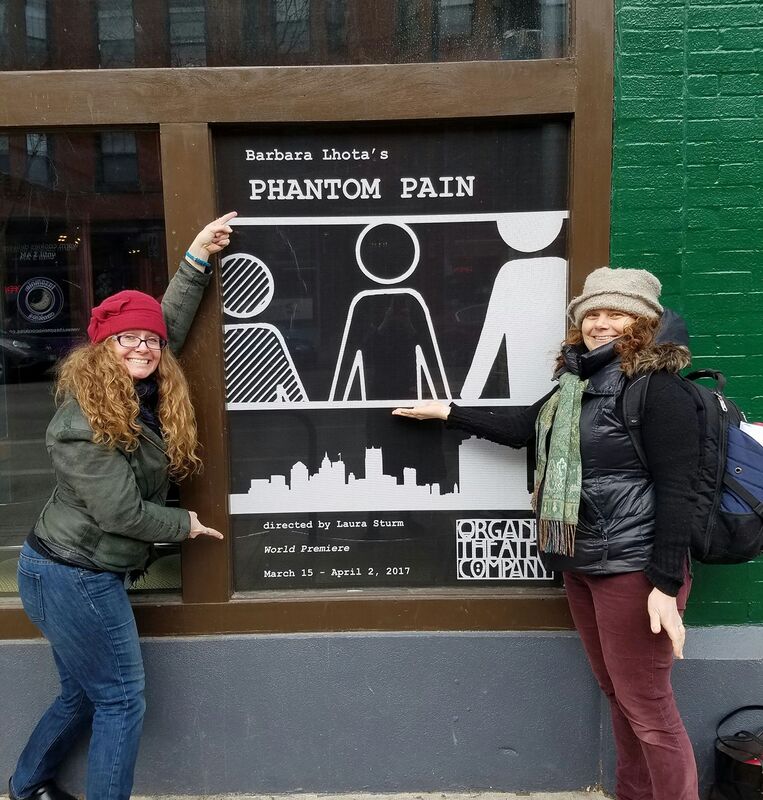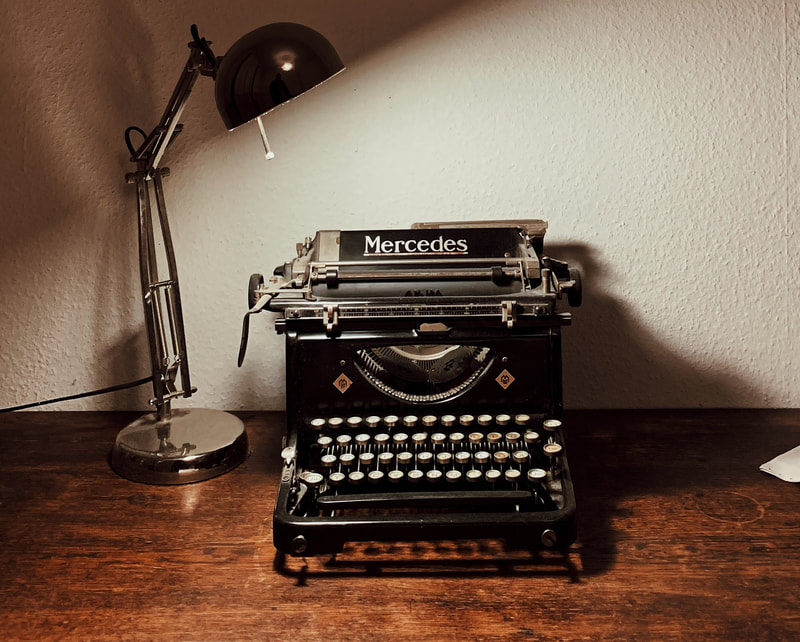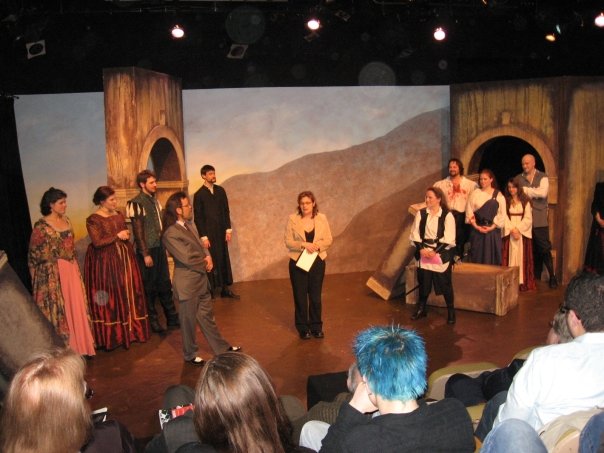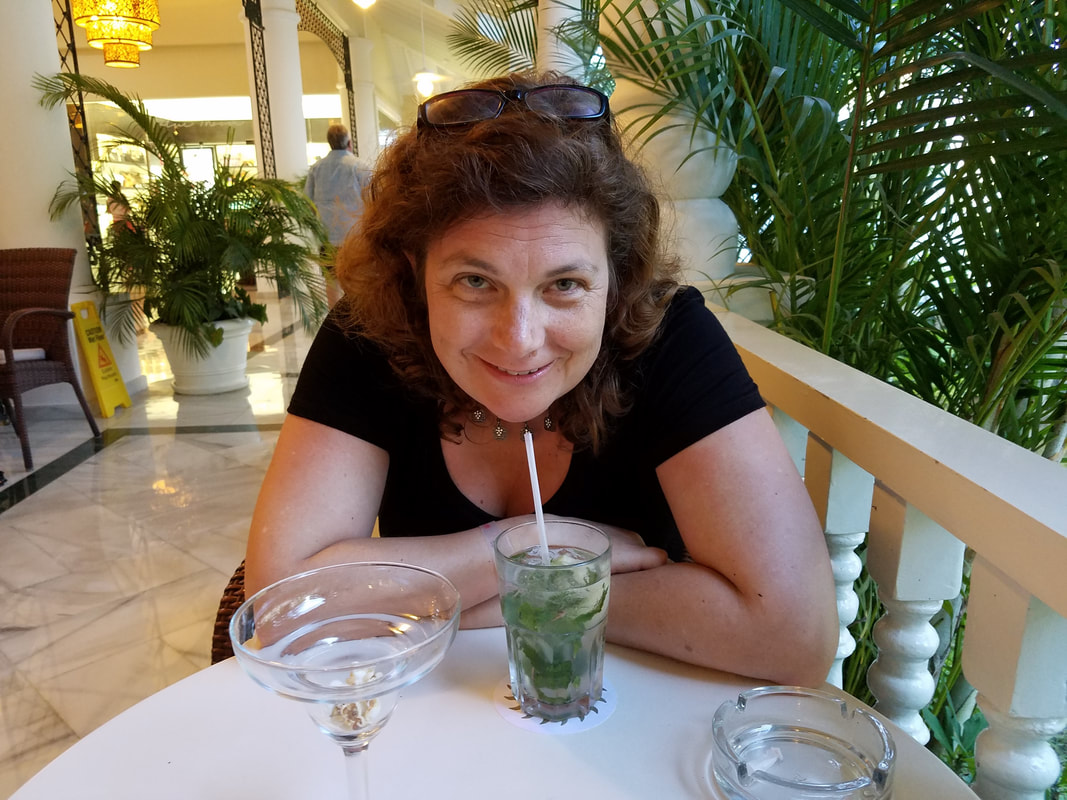Artist Statement
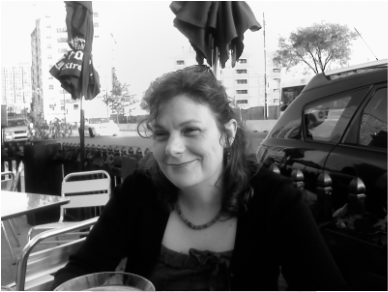
One detail in my less than scintillating memoir in fifth grade stood out: I wanted to be a puppeteer when I grew up. This goal was unusual in a sea of doctors, teachers, and auto factory workers in my motor city hometown. Apparently, making big money was never a high priority.
As a puppeteer, I thought, the story is yours, and you are all the characters, at least at the beginning. Growing up as a kid in Detroit in the 70s, a city reeling with racial and economic tension, this kind of control seemed highly attractive.
I always had a magnificent imagination and a memory of how things were said. I could frequently soak up what my family or friends told me and remind them of their exact words. As the youngest child of six, my older siblings founding this less of an asset than I did.
I'm the youngest in a large Catholic family. Most of us Lhotas are scientists and mathematicians who are not always comfortable expressing themselves - pocket-protector types with big hearts who read a ton but tend to communicate indirectly. I'm sure my post-depression-era parents had discomfort with discussing the "dangerous" world I sometimes experienced as a kid growing up in the 70s. Still, they provided us with love, patience, wisdom, and compassion—a kind of hope for a better future.
You were wondering what all this has to do with my plays. So here it is: I'm fascinated with what people don't say, what they hide. I'm fascinated with the fluidity of memory, miscommunication, prejudice, privilege, and fear and how these things cause humans to hide their identities along with past pains. Sometimes in a dangerous world, hiding is the only way to protect yourself. Whether I am writing drama or comedy, my characters struggle to overcome their fears to discover their true selves. I still view the world as dangerous and full of good people, angels of sorts, who help you along the way. I hope my plays reflect that world.
As a puppeteer, I thought, the story is yours, and you are all the characters, at least at the beginning. Growing up as a kid in Detroit in the 70s, a city reeling with racial and economic tension, this kind of control seemed highly attractive.
I always had a magnificent imagination and a memory of how things were said. I could frequently soak up what my family or friends told me and remind them of their exact words. As the youngest child of six, my older siblings founding this less of an asset than I did.
I'm the youngest in a large Catholic family. Most of us Lhotas are scientists and mathematicians who are not always comfortable expressing themselves - pocket-protector types with big hearts who read a ton but tend to communicate indirectly. I'm sure my post-depression-era parents had discomfort with discussing the "dangerous" world I sometimes experienced as a kid growing up in the 70s. Still, they provided us with love, patience, wisdom, and compassion—a kind of hope for a better future.
You were wondering what all this has to do with my plays. So here it is: I'm fascinated with what people don't say, what they hide. I'm fascinated with the fluidity of memory, miscommunication, prejudice, privilege, and fear and how these things cause humans to hide their identities along with past pains. Sometimes in a dangerous world, hiding is the only way to protect yourself. Whether I am writing drama or comedy, my characters struggle to overcome their fears to discover their true selves. I still view the world as dangerous and full of good people, angels of sorts, who help you along the way. I hope my plays reflect that world.
